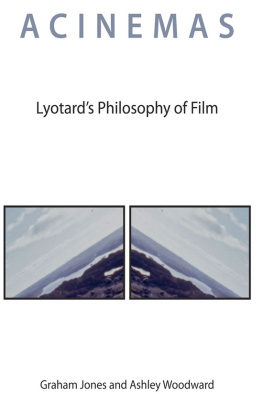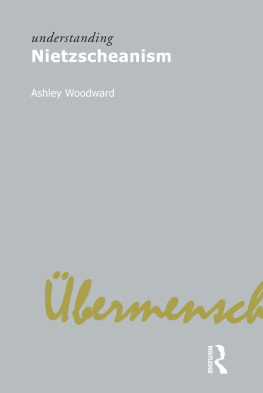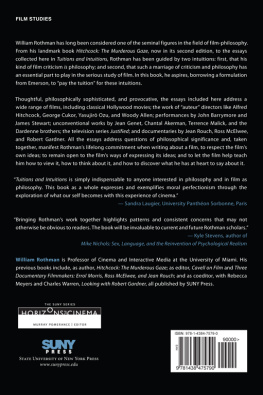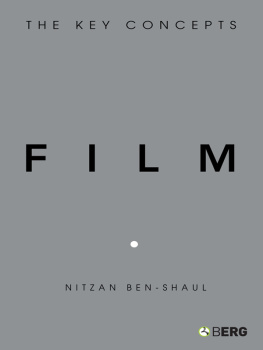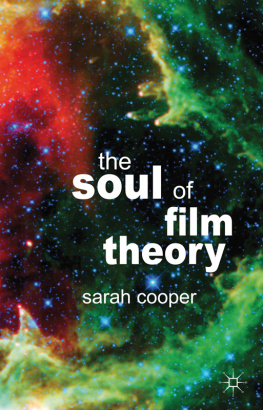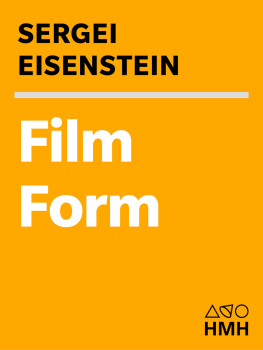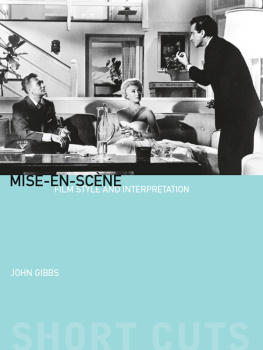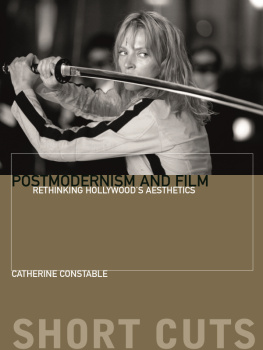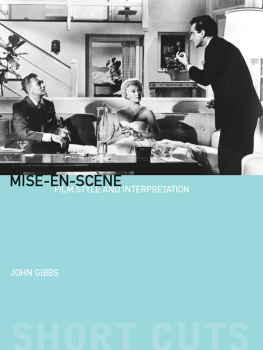
Acinemas
Acinemas
Lyotards Philosophy of Film
Edited by Graham Jones and Ashley Woodward
EDINBURGH
University Press
Edinburgh University Press is one of the leading university presses in the UK. We publish academic books and journals in our selected subject areas across the humanities and social sciences, combining cutting-edge scholarship with high editorial and production values to produce academic works of lasting importance. For more information visit our website: edinburghuniversitypress.com
editorial matter and organisation Graham Jones and Ashley Woodward, 2017
the chapters their several authors, 2017
Edinburgh University Press Ltd
The Tun Holyrood Road,
12(2f) Jacksons Entry,
Edinburgh EH8 8PJ
Typeset in 11/13 Adobe Garamond by
IDSUK (DataConnection) Ltd, and
printed and bound in Great Britain by
CPI Group (UK) Ltd, Croydon CR0 4YY
A CIP record for this book is available from the British Library
ISBN 978 1 4744 1893 5 (hardback)
ISBN 978 1 4744 1895 9 (webready PDF)
ISBN 978 1 4744 1894 2 (paperback)
ISBN 978 1 4744 1896 6 (epub)
The right of Graham Jones and Ashley Woodward to be identified as the editors of this work has been asserted in accordance with the Copyright, Designs and Patents Act 1988, and the Copyright and Related Rights Regulations 2003 (SI No. 2498).
Contents
Acknowledgements
T his book began as a research project centred around a two-day conference, Acinemas: Aesthetics and Film in the Philosophy of Jean-Franois Lyotard, held at the University of Dundee, 78 May 2014. We would like to thank everyone who participated in the conference, and the Scots Philosophical Association and the School of Humanities at the University of Dundee for supporting it. Particular thanks are due to Peter W. Milne, who has not only contributed to the translations, written a chapter, and provided the basis for the Bibliography, but who suggested the initial idea from which this book has developed. Thanks are due to Amlie Berger Soraruff for many helpful suggestions on the translations. Thanks also to Jon Roffe. And of course, we would like to thank everyone who contributed to this book.
Specific thanks are due to the following people and organisations for permission to include the indicated material:
Jean-Michel Durafour and Toni dAngel, editor of La Furia Umana, for Cinema Lyotard: An Introduction. Dolores Lyotard for Acinema, The Unconscious as Mise-en-scne, Two Metamorphoses of the Seductive in Cinema, The Idea of a Sovereign Film and Memorial Immemorial. Paisley N. Livingston for permission to include, as well as to modify, his translation of Acinema. The Center for 21st Century Studies at the University of Wisconsin-Milwaukee for The Unconscious as Mise-en-scne. Claudine Eizykman and Guy Fihman for Lyotards Film Work. Jean-Louis Deott for Memorial Immemorial. Ken McMullen for the still from Ghost Dance. The National Film Board of Canada for the image from The Metamorphosis of Mr Samsa and Warner Bros. for the still from Inception. And finally, Cindoc Paris Films Coop for the images from LAutre scne and Mao Gillette.
Grateful acknowledgement is made for permission to reproduce material previously published elsewhere. Every effort has been made to trace the copyright holders, but if any have been inadvertently overlooked, the publisher will be pleased to make the necessary arrangements at the first opportunity.
Abbreviations
Abbreviations used to refer to works by Jean-Franois Lyotard
Ac | Acinema, this volume. |
CA | The Confession of Augustine, trans. Richard Beardsworth, Stanford: Stanford University Press, 2000. |
D | The Differend: Phrases in Dispute, trans. Georges Van Den Abbeele, Manchester: Manchester University Press, 1988. |
DF | Discourse, Figure, Minneapolis: University of Minnesota Press, 2011. |
DP | Des Dispositifs pulsionnels, Paris: Union Gnral dEditions, 1973. |
DT | Duchamps TRANS/formers, trans. Ian McLeod, Venice, CA: Lapis Press, 1990. |
DW | Driftworks, ed. Roger McKeon, New York: Semiotext(e), 1984. |
HJ | Heidegger and the jews, trans. Andreas Michel and Mark S. Roberts, Minneapolis: University of Minnesota Press, 1990. |
IN | The Inhuman: Reflections on Time, trans. Geoffrey Bennington and Rachel Bowlby, Cambridge: Polity Press, 1991. |
ISF | The Idea of a Sovereign Film, this volume. |
KA | Karel Appel: A Gesture of Colour, trans. Vlad Ionescu and Peter W. Milne, Leuven: Leuven University Press, 2009. |
LAS | Lessons on the Analytic of the Sublime, trans. Elizabeth Rottenberg, Stanford: Stanford University Press, 1994. |
LE | Libidinal Economy, trans. Iain Hamilton Grant, London: Athlone, 1993. |
LR | The Lyotard Reader, ed. Andrew Benjamin, Oxford: Basil Blackwell, 1989. |
LRG | The Lyotard Reader and Guide, ed. Keith Crome and James Williams, Edinburgh: Edinburgh University Press, 2006. |
MP | Misre de la philosophie, Paris: Galile, 2000. |
MT1 | Miscellaneous Texts I: Aesthetics and Theory of Art, ed. Herman Parret, Leuven: Leuven University Press, 2012. |
MT2 | Miscellaneous Texts II: Contemporary Artists, ed. Herman Parret, Leuven: Leuven University Press, 2012. |
P | Peregrinations: Law, Form, Event, New York: Columbia University Press, 1988. |
PC | The Postmodern Condition: A Report on Knowledge, trans. Geoff Bennington and Brian Massumi, Manchester: Manchester University Press, 1984. |
PF | Postmodern Fables, trans. Georges Van Den Abbeele, Minneapolis: University of Minnesota Press, 1997. |
PW | Jean-Franois Lyotard: Political Writings, trans. Bill Readings and Kevin Paul, Minneapolis: University of Minnesota Press, 1993. |
RP | Rudiments paens: genre dissertatif, Paris: Unions gnrale dditions, 1977. |
TM | Two Metamorphoses of the Seductive in Cinema, this volume. |
TP | Toward the Postmodern, ed. Robert Harvey and Mark S. Roberts, Atlantic Highlands, NJ: Humanities Press, 1993. |
UM | The Unconscious as Mise-en-scne, this volume. |
WP | What to Paint?, ed. Herman Parret, Leuven: Leuven University Press, 2012. |
WPh | Why Philosophize?, trans. Andrew Brown, Cambridge: Polity, 2013. |
Translators Note
A s far as possible we have tried to maintain a consistency of terminology in the translations of the four essays by Lyotard on film. The following are brief explanations of some of our terminological choices.
Cinaste. See Metteur en scne.
Dcoupage. Editing is a common but misleading translation. In his original translation of Acinema, Paisley Livingston translates it as the final script and the spatio-temporal synthesis of the narration. This captures something of the complexity of the term as it is used in French film theory, but for the sake of parsimony we have preferred scene organisation. For a detailed discussion of the various meanings of this word and its history and uses in French film theory, see Timothy Barnards extensive note in his translation of Andr Bazin,
Next page
